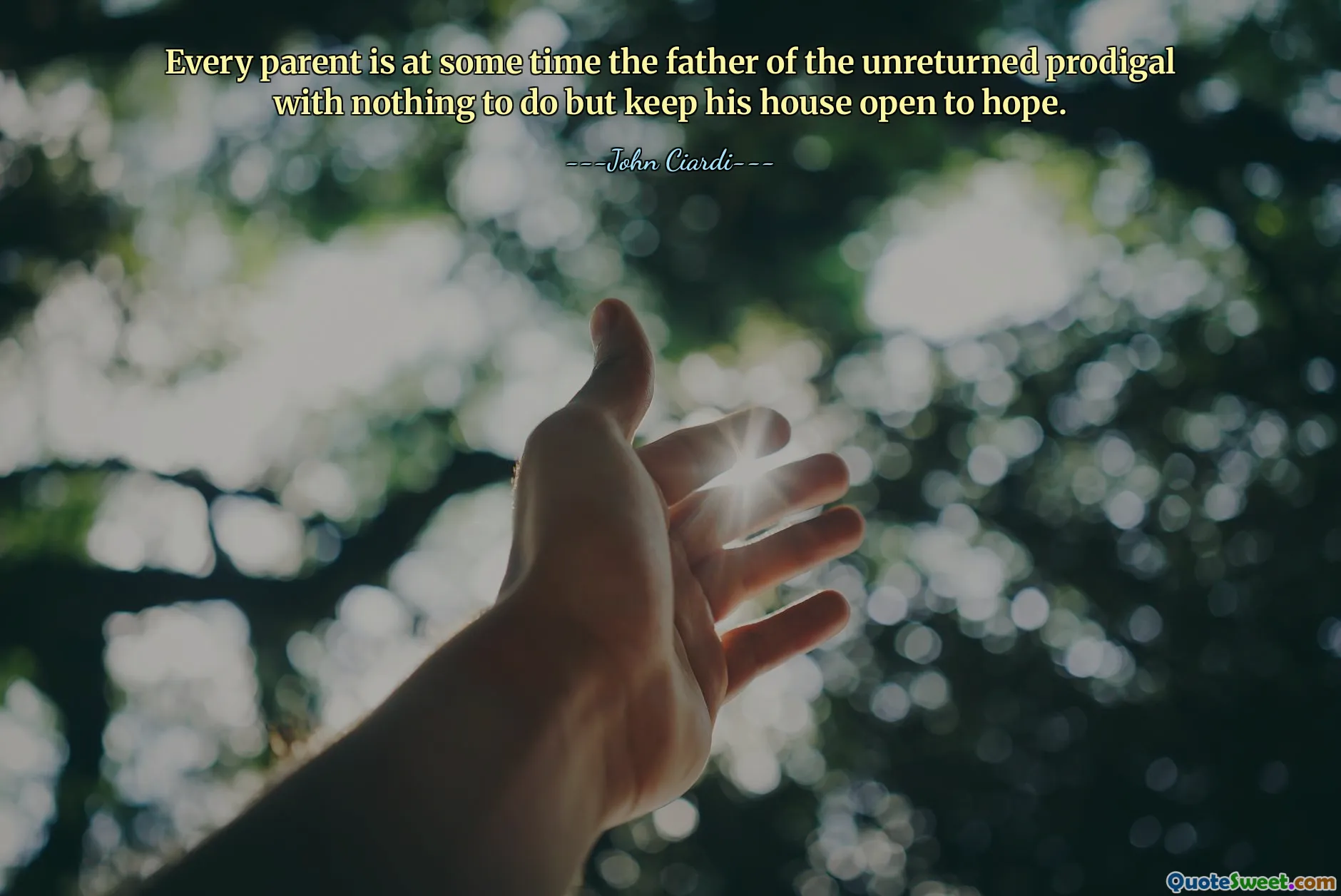
Every parent is at some time the father of the unreturned prodigal with nothing to do but keep his house open to hope.
John Ciardi's quote resonates deeply with the universal experience of parenting, reflecting the blend of patience, faith, and unconditional love that defines the relationship between parents and their children. The imagery of the "unreturned prodigal" evokes the biblical parable of the prodigal son, a son who leaves home, only to return repentant after a period of trial and error. Ciardi extends this metaphor to encompass a broader truth about parenting: there are moments when the child’s journey leads away from the safety or approval of the home, and the parent must then rely on hope rather than control or certainty.
This quote poignantly captures the emotional tension parents endure — caught between the desire to protect and the necessity to allow independence. The "house open to hope" is a powerful symbol of enduring love and forgiveness. It suggests that, despite disappointments or the fear of loss, a parent's home remains a sanctuary, patiently awaiting the child’s return, physically or metaphorically, to the fold of family and belonging.
Reflecting on this quote invites us to consider not only the parental role but also the dynamics of trust and resilience in human relationships. It acknowledges vulnerability, the pain of separation, and the resilience required to maintain hope in adversity. Ciardi’s words remind us that parenting is not about constant success but about steadfast presence — embracing the complexity of love that holds on, even when the outcome is uncertain.











